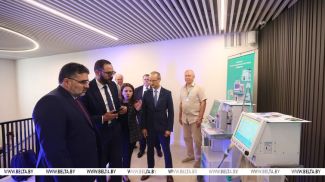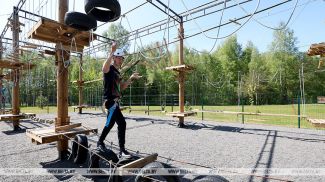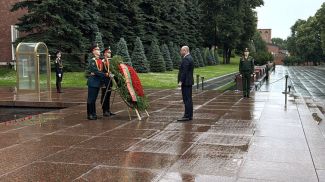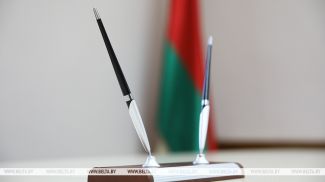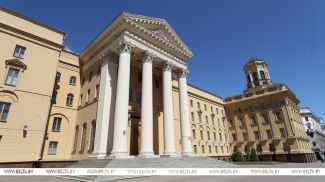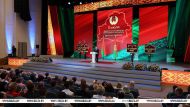MINSK, 6 June (BelTA) – A collection of Belarusian proverbs and sayings was translated into Chinese and presented in the Central Scientific Library of the National Academy of Sciences of Belarus on 6 June, BelTA has learned.
According to Academician Alexander Lokotko, Director of the Center for Belarusian Culture, Language, and Literature Studies of the National Academy of Sciences of Belarus, the book has been published thanks to the first Belarusian-Chinese scientific forum of liberal arts scientists, which took place in Beijing and Shanghai in 2015. “During the forum we worked out the idea for the cultural exchange of spiritual legacies of our nations. The work took a year. Now we've published the book, which offers a Chinese translation of small folklore genres. They reflect common human values, which inspire people to work, inspire love for their father's home, sanctity of motherhood, tolerance, and good will,” said Alexander Lokotko.
The anthology contains the most typical proverbs and sayings of the Belarusian language and their translations into Chinese. The rich decorative design is part of the book's worth. The authors had to go through about 12,000 folklore works to select 100 proverbs and sayings. All of them are illustrated. Specialists of the Art Studies, Ethnography, and Folklore Institute of the National Academy of Sciences of Belarus, the Belarusian State University, and the Belarusian State Academy of Arts worked on the book.
Alexander Lokotko noted that work in this area continues. There are plans to publish a work on folk riddles this year. A book on children's folklore, ballads, and fairytales will be published later on, with plans to release a total of five volumes. Starting with the next book, Belarusian folklore will be translated not only into Chinese but English as well.
Plans have been made to publish collections of Chinese folklore in Belarusian. More details will be released during the second Belarusian-Chinese scientific forum of liberal arts scientists in Belarus this year.
Apart from that, the book National Architecture and Fractal Architecture was presented on 6 June. It reflects parallels in art and architecture of Belarus and China. The book reveals common traits and national peculiarities in the spiritual perception of nature, semantics and semiotics of homes, cities, futuristic ideas for shaping the habitable environment. Alexander Lokotko underlined that since Belarus and China are socialistic countries, Belarusian and Chinese cities look alike. Working on the book, the authors found many parallels and adoptions. Revealing these parallels is beneficial for Belarus-China cooperation, the academician was convinced.




